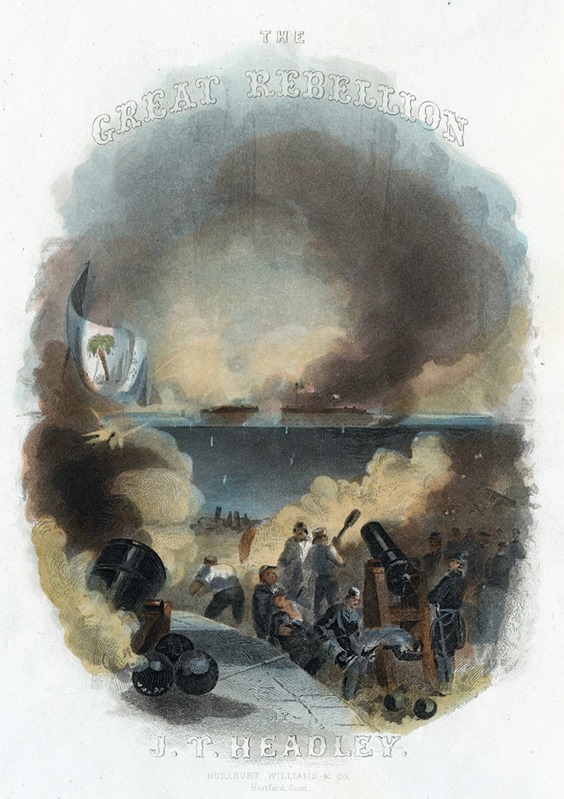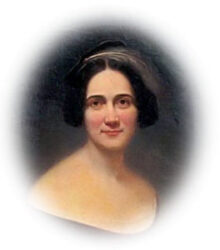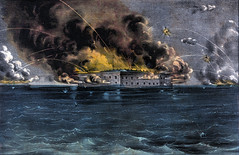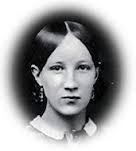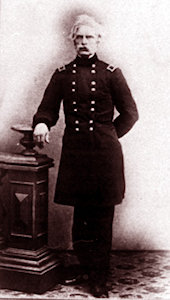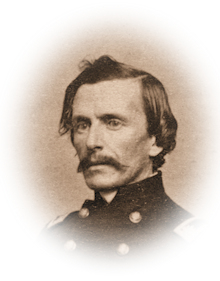HEADQUARTERS STEAMSHIP ATLANTIC,
Off Key West, April 12, 1861.
Lieut. Col. E. D. KEYES,
Secretary to General-in-Chief, Washington, D.C.:
COLONEL: In obedience to the special instructions of the General-in-Chief, I proceeded to New York on the 2d, and arrived there on the morning of the 3d instant, and was engaged until Saturday, the 6th, in preparing for this expedition. On the afternoon of that day Barry’s battery (Company A, Second Artillery), Hunt’s company (M, Second Artillery), Duane’s company of Sappers and Miners, and Companies C and E (Johns’ and Clitz’s), Third Infantry, and twenty Engineer carpenters were embarked on board the steamship Atlantic, Captain Gray. We hauled out in the stream at dark, but continued to take in cargo through the night, and on Sunday morning at 3 ½ weighed anchor and went to sea. On Tuesday and Wednesday we had a heavy gale, dead ahead, the horses of the battery suffering very much from the heavy sea, the wet, and the cold, and were preserved only by the substantial excellence of our ship and the vigilant care of the officers. Only two died during the gale, and the rest are doing well. My command are all healthy and in good spirits.
I have directed Lieutenant Balch, ordnance officer, to make on the proper offices requisitions for various articles which were not to be procured at our departure. I respectfully urge that they be sent immediately.
I ordered the purchase of two 6-pounder rifled guns, which are said to be at Fort Columbus, and that a 42-pounder rifled gun, also at that post, be sent, with all the necessary implements and projectiles, by the first vessel. I have also directed Lieutenant Balch to make a special estimate of guns for Fort Jefferson, which may be of vital importance, and which should be furnished without delay.
I would respectfully and earnestly urge that six 42-pounder rifled guns, with implements complete, and one thousand rounds of ammunition to each gun, as specified in the requisition of Lieutenant Balch, be immediately prepared and sent by steamer to Fort Pickens. Their value will be inestimable. With them we shall be able to act, if need be, with great efficiency against Fort McRee, Barrancas, and the navy-yard, and place our opponents from an offensive to a defensive position. I earnestly solicit the approbation of the General-in-Chief on this subject, and that the guns may be prepared and sent by steam without a moment’s delay. James’ apparatus for rifling guns is at Fort Columbus, and the guns, if diligence be exercised, may be prepared for shipment in a week.
We go into Key West for two or three hours on important duty enjoined by the General-in-Chief, and from thence to Fort Jefferson for some indispensable articles, where we shall be delayed only a short time, and shall then proceed to our destination.
I am, sir, very respectfully, your obedient servant,
HARVEY BROWN,
Colonel, Commanding.
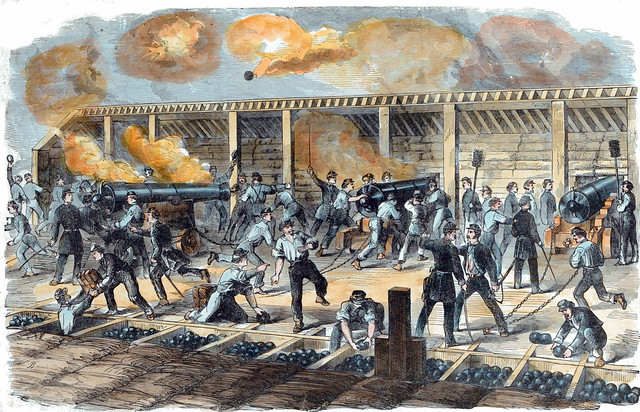 Handed-tinted off-print of originally black and white engraving
Handed-tinted off-print of originally black and white engraving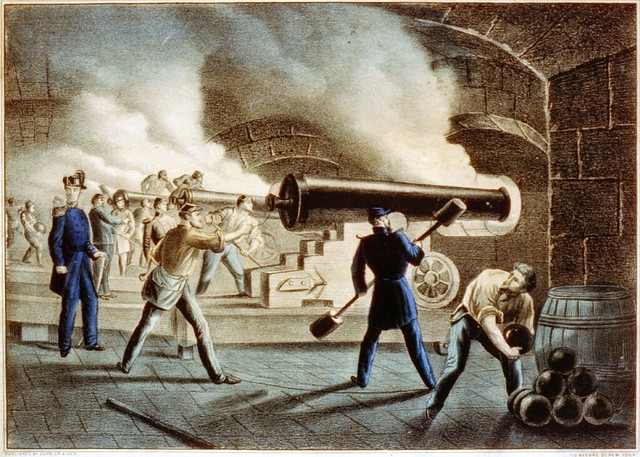
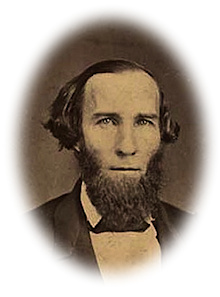
 Alarm guns have just fired at Fort Pickens. I fear the news is received and it will be re-enforced before morning. It cannot be prevented. Mr. Worden got off in cars before I knew of his landing. Major Chambers is in the cars. He will watch Mr. Worden’s movements. If you deem it advisable, Mr. Worden can be stopped in Montgomery.
Alarm guns have just fired at Fort Pickens. I fear the news is received and it will be re-enforced before morning. It cannot be prevented. Mr. Worden got off in cars before I knew of his landing. Major Chambers is in the cars. He will watch Mr. Worden’s movements. If you deem it advisable, Mr. Worden can be stopped in Montgomery.

